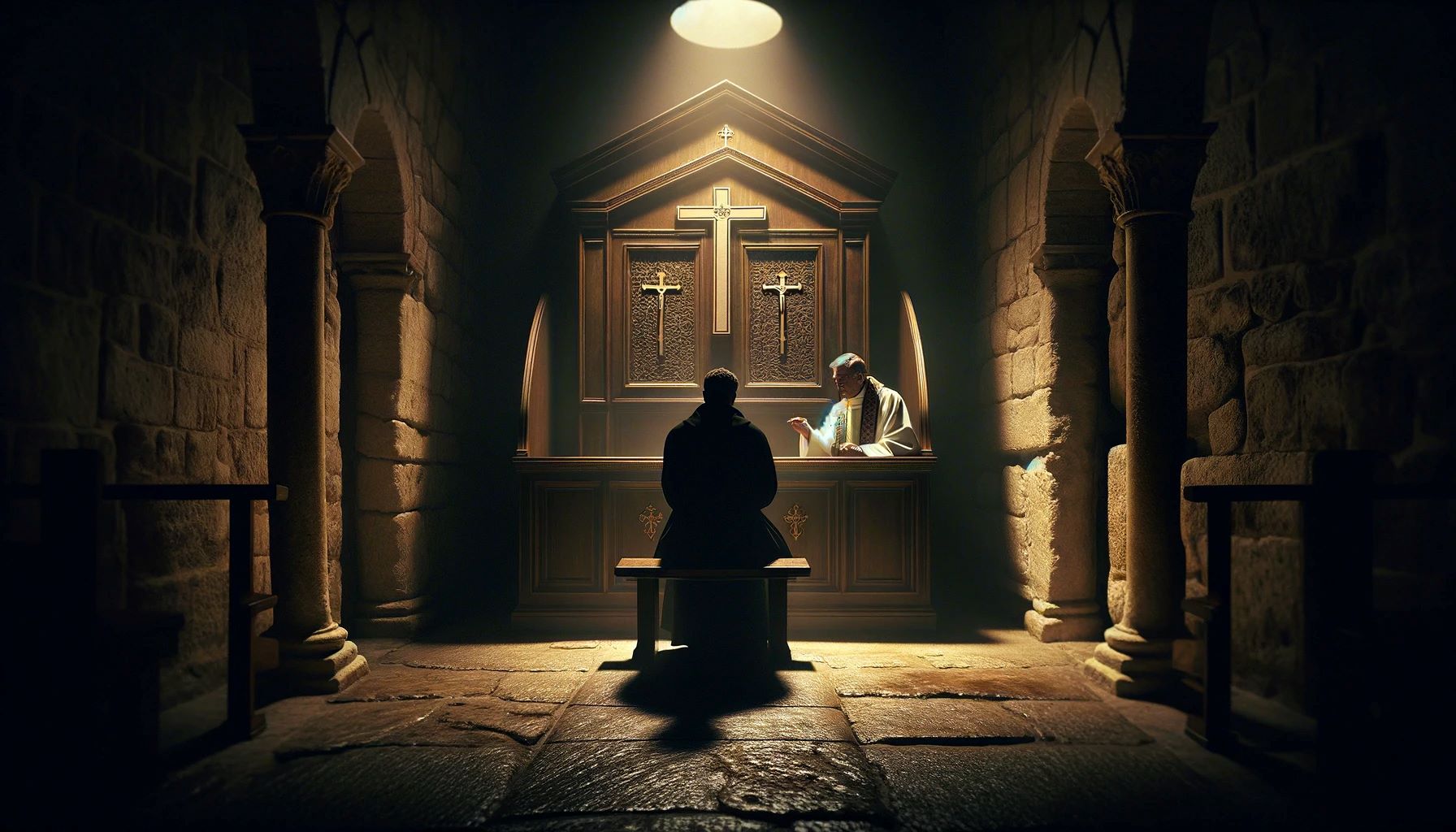Home>Theology and Spirituality>What Is The 1689 Baptist Confession Of Faith


Theology and Spirituality
What Is The 1689 Baptist Confession Of Faith
Published: February 20, 2024
Peter Smith, Editorial Director at Christian.net, combines deep insights into faith, politics, and culture to lead content creation that resonates widely. Awarded for his contributions to religious discourse, he previously headed a major organization for religious communicators, enhancing dialogue on faith's societal impacts.
Discover the key beliefs and doctrines outlined in the 1689 Baptist Confession of Faith. Explore its significance in theology and spirituality.
(Many of the links in this article redirect to a specific reviewed product. Your purchase of these products through affiliate links helps to generate commission for Christian.net, at no extra cost. Learn more)
Table of Contents
Introduction
The 1689 Baptist Confession of Faith, also known as the Second London Baptist Confession, holds a significant place in the history of Reformed Baptist theology. This historic document serves as a comprehensive statement of faith, outlining the core beliefs and doctrines upheld by Particular Baptists. It stands as a testament to the theological convictions and ecclesiastical identity of the 17th-century English and Welsh Baptists.
The confession was crafted during a time of intense religious and political upheaval in England. Against the backdrop of the English Civil War and the Restoration, the 1689 Baptist Confession of Faith emerged as a unifying force among Particular Baptist congregations. Its purpose was to provide a clear and unambiguous declaration of the beliefs held by these churches, offering a doctrinal standard that reflected their commitment to the authority of Scripture and the principles of the Reformed tradition.
As we delve into the historical and theological significance of the 1689 Baptist Confession of Faith, we will explore its origins, key beliefs, and enduring influence. This exploration will shed light on the enduring legacy of this confession and its impact on the development of Baptist theology and ecclesiology.
Read more: What Is A Confession Of Faith
History of the 1689 Baptist Confession of Faith
The 1689 Baptist Confession of Faith, also known as the Second London Baptist Confession, has its roots in the tumultuous religious and political landscape of 17th-century England. In the wake of the English Civil War and the execution of King Charles I, the country was engulfed in a period of profound social and religious transformation. Amidst this backdrop, Particular Baptist congregations sought to articulate their theological convictions and ecclesiastical identity through a formal statement of faith.
In 1644, the First London Baptist Confession was adopted, representing the doctrinal beliefs of the Particular Baptists. However, as political and religious dynamics continued to shift, a need arose for a more comprehensive and refined statement of faith. This led to the assembly of a group of seven elders from Particular Baptist churches in 1677, who collaborated to revise the existing confession. The result of their labor was the 1677/89 Baptist Confession of Faith, which was officially published in 1689.
The confession drew heavily from the Westminster Confession of Faith (1646) and the Savoy Declaration (1658), reflecting the influence of Reformed theology and the doctrinal positions of the broader Puritan movement. It consisted of 32 chapters, addressing a wide range of theological topics including the nature of God, the covenant of grace, the doctrine of salvation, the church, and the last judgment. This comprehensive document served as a unifying force, providing doctrinal clarity and theological cohesion for Particular Baptist congregations.
The 1689 Baptist Confession of Faith played a pivotal role in solidifying the theological identity of Particular Baptists, offering a robust framework for understanding their beliefs and practices. Its enduring legacy is evident in its continued use by Reformed Baptist churches around the world as a doctrinal standard and statement of faith. The confession stands as a testament to the enduring commitment of Particular Baptists to the authority of Scripture and the foundational principles of the Reformed tradition.
In the next section, we will delve into the key beliefs and doctrines articulated in the 1689 Baptist Confession of Faith, shedding light on its theological significance and enduring relevance.
Key Beliefs and Doctrines
The 1689 Baptist Confession of Faith encapsulates a rich tapestry of theological convictions that define the beliefs and doctrines of Particular Baptist congregations. At its core, the confession reflects a robust commitment to Reformed theology and a deep reverence for the authority of Scripture. Let's explore some of the key beliefs and doctrines articulated in this historic document:
The Sovereignty of God
Central to the confession is the affirmation of God's absolute sovereignty over all creation. It emphasizes the divine decree, providence, and predestination, underscoring the overarching sovereignty of God in all aspects of human existence.
The Doctrines of Grace
The confession expounds upon the doctrines of grace, commonly known by the acronym TULIP (Total depravity, Unconditional election, Limited atonement, Irresistible grace, Perseverance of the saints). These doctrines underscore the sovereign work of God in the salvation of sinners, highlighting the unconditional nature of divine election and the efficaciousness of God's grace in the redemption of His chosen people.
The Authority of Scripture
Affirming the infallibility and sufficiency of the Bible, the confession upholds the primacy of Scripture as the ultimate standard for faith and practice. It underscores the divine inspiration and inerrancy of the Scriptures, emphasizing their role as the supreme authority in all matters of faith and conduct.
The Covenant of Grace
The confession articulates a robust understanding of the covenant of grace, highlighting God's eternal plan of redemption and His covenantal relationship with His people. It elucidates the role of Christ as the mediator of the new covenant, emphasizing the centrality of His atoning work in securing the salvation of the elect.
The Church and the Ordinances
Addressing ecclesiology, the confession delineates the nature and purpose of the church, emphasizing the importance of the local congregation and the scriptural ordinances of baptism and the Lord's Supper. It underscores the autonomy of the local church while affirming the unity of the universal body of Christ.
The Last Judgment
The confession concludes with a solemn affirmation of the last judgment, underscoring the future resurrection of all individuals and the final judgment by Christ. It emphasizes the eternal destinies of the righteous and the wicked, highlighting the ultimate vindication of God's justice and the consummation of His redemptive purposes.
These key beliefs and doctrines encapsulate the theological richness and doctrinal precision of the 1689 Baptist Confession of Faith, providing a comprehensive framework for understanding the core tenets of Reformed Baptist theology.
Read more: What Is The Baptist Faith And Message
Influence and Legacy
The 1689 Baptist Confession of Faith has left an indelible mark on the landscape of Reformed theology and Baptist ecclesiology, exerting a profound influence that transcends temporal and geographical boundaries. Its enduring legacy is evidenced in the theological heritage of Reformed Baptist churches and the broader impact it has had on the development of Christian thought and practice.
Doctrinal Standard and Unity
The confession served as a doctrinal standard, fostering theological cohesion and unity among Particular Baptist congregations. It provided a unifying framework that solidified their shared beliefs and practices, offering a cohesive identity amidst the diverse theological landscape of 17th-century England.
Theological Influence
Beyond its immediate historical context, the confession has continued to shape the theological landscape of Reformed Baptist churches worldwide. Its doctrinal precision and robust articulation of Reformed theology have contributed to the enduring legacy of Particular Baptist distinctives, influencing subsequent generations of theologians and church leaders.
Missional Impact
The confession's emphasis on the sovereignty of God, the doctrines of grace, and the authority of Scripture has informed the missional endeavors of Reformed Baptist churches, shaping their approach to evangelism, discipleship, and cultural engagement. Its influence extends to the global mission field, where Reformed Baptist missionaries have carried its theological convictions to diverse cultural contexts.
Read more: What Is The London Baptist Confession
Educational Resource
The confession has served as an educational resource, guiding theological training and equipping future generations of Reformed Baptist pastors and theologians. Its enduring relevance as a doctrinal statement has made it a foundational text in theological education, ensuring the perpetuation of its theological legacy.
Ecumenical Dialogue
In a broader ecumenical context, the confession has sparked dialogue and engagement across denominational lines, fostering a deeper understanding of Reformed Baptist theology and its distinctive contributions to the broader Christian tradition. Its influence has transcended denominational boundaries, enriching the larger tapestry of Christian theological discourse.
The enduring legacy of the 1689 Baptist Confession of Faith is a testament to its enduring relevance and theological richness. Its impact on Reformed Baptist churches and the broader Christian community underscores its significance as a foundational document in the history of Christian theology.
Criticisms and Controversies
The 1689 Baptist Confession of Faith, despite its revered status within Reformed Baptist circles, has not been immune to criticisms and controversies. While it has served as a doctrinal standard and unifying force for Particular Baptist congregations, it has also faced scrutiny and debate from various quarters.
One area of contention revolves around the confession's stance on certain theological doctrines, particularly its articulation of the doctrines of grace and the nature of divine sovereignty. Critics have raised concerns about the perceived rigidity of the confession's doctrinal positions, arguing that its emphasis on particular theological perspectives may limit theological diversity and dialogue within Reformed Baptist communities.
Additionally, the confession's historical context and its alignment with the broader Reformed tradition have sparked debates regarding its relevance in contemporary theological discourse. Some scholars and theologians have questioned the extent to which the confession's 17th-century formulations can be applied to the complex theological and cultural challenges of the present day. This has led to discussions about the need for contextualization and adaptation of its doctrinal emphases to address contemporary issues and theological developments.
Furthermore, the confession's delineation of ecclesiological principles and its emphasis on the autonomy of the local church have been the subject of debate within Baptist circles. While some view these principles as foundational to Baptist identity and ecclesiological practice, others have raised concerns about the potential for ecclesial isolationism and the fragmentation of the broader body of Christ.
In light of these criticisms and controversies, it is important to recognize the ongoing dialogue and reflection within Reformed Baptist communities regarding the interpretation and application of the confession's doctrinal positions. While the confession remains a cherished document within these circles, the recognition of its limitations and the need for ongoing theological engagement reflect a commitment to the vitality and relevance of Reformed Baptist theology in the contemporary world.
The criticisms and controversies surrounding the 1689 Baptist Confession of Faith serve as a reminder of the dynamic nature of theological discourse and the imperative of engaging with doctrinal formulations in a spirit of humility, discernment, and openness to diverse perspectives.
Conclusion
The 1689 Baptist Confession of Faith stands as a timeless testament to the enduring theological convictions and ecclesiastical identity of Reformed Baptist churches. Its historical significance, doctrinal precision, and enduring legacy underscore its profound impact on the landscape of Christian theology. As a doctrinal standard, it has provided theological cohesion and unity among Particular Baptist congregations, fostering a shared identity rooted in the foundational principles of the Reformed tradition.
The confession's influence extends far beyond its historical context, shaping the theological landscape of Reformed Baptist churches worldwide and informing their missional endeavors, educational initiatives, and ecumenical engagement. Its doctrinal richness and robust articulation of Reformed theology continue to inspire and guide subsequent generations of theologians, pastors, and believers, ensuring the perpetuation of its theological legacy.
While the confession has faced criticisms and controversies, its enduring relevance and theological richness remain undeniable. The ongoing dialogue and reflection within Reformed Baptist communities reflect a commitment to the vitality and relevance of their theological heritage in the contemporary world. The confession's enduring legacy serves as a reminder of the dynamic nature of theological discourse and the imperative of engaging with doctrinal formulations in a spirit of humility, discernment, and openness to diverse perspectives.
In conclusion, the 1689 Baptist Confession of Faith stands as a beacon of doctrinal clarity, theological richness, and ecclesiastical unity within the Reformed Baptist tradition. Its enduring legacy continues to shape the theological landscape of Reformed Baptist churches, inspiring a deep commitment to the authority of Scripture, the sovereignty of God, and the proclamation of the gospel. As Reformed Baptist communities continue to uphold and engage with the confession's theological convictions, they affirm its enduring relevance and timeless significance in the ongoing narrative of Christian theology and ecclesiology.












